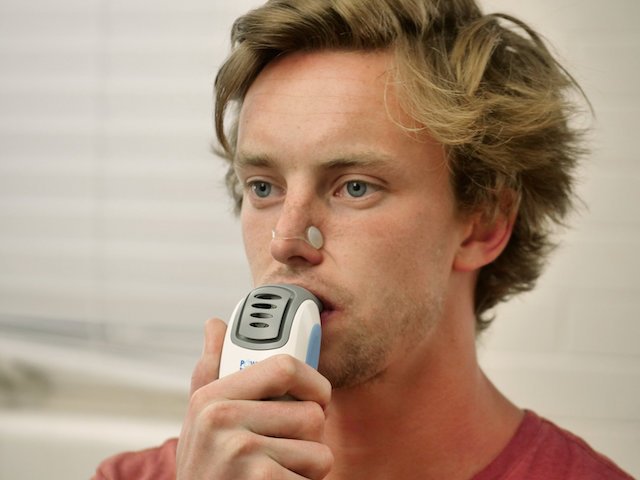
In a new study, researchers found that a 5-minute exercise could help people improve their blood pressure and boost brain function.
The exercise is called Inspiratory Muscle Strength Training (IMST). It doesn’t include lifting a single weight or jogging a single step.
The research was conducted by a team from the University of Colorado Boulder.
IMST is a strength-training for the muscles people breathe in with. It was developed in the 1980s as a method to help critically ill people recover.
The exercise was initially used in patients with lung diseases. They performed a 30-minute, low-resistance regimen daily to boost their lung capacity.
The exercise involves breathing in vigorously through a hand-held device called an inspiratory muscle trainer that could provide resistance.
It is a very simple exercise that people can do quickly at home or in the office, without having to change clothes.
But it can reduce heart attack risk, improve brain function and boost sports performance.
Previous research has shown that just 30 inhalations per day with greater resistance could help people with obstructive sleep apnea.
In addition, the participants’ systolic blood pressure decreased by 12 millimeters of mercury.
The decrease is quite big: it’s about twice as much of a decrease an aerobic exercise can produce and more than many blood pressure medications can achieve.
Systolic blood pressure is the pressure in blood vessels when your heart beats.
High systolic blood pressure could lead to heart attack, cognitive decline, and kidney damage. Currently, 65% of mid-life adults have high systolic blood pressure.
In the current study, the team aimed to develop time-efficient, evidence-based interventions that busy mid-life adults will actually perform.
Their preliminary data showed strong drops in blood pressure and improvements in large-artery function in people who performed IMST.
In addition, the IMST group performed better on some cognitive and memory tests.
They could also stay on the treadmill longer and keep their heart rate and oxygen consumption lower during exercise.
The researchers so far have not found any real side-effects, because fewer than 10% of study participants drop out.
They suggest that their findings are preliminary and that people should ask their doctor before considering IMST.
The leader of the study is Daniel Craighead, a postdoctoral researcher in the University of Colorado Boulder Integrative Physiology department.
The study was presented at the Experimental Biology conference in Orlando.
Copyright © 2019 Knowridge Science Report. All rights reserved.



